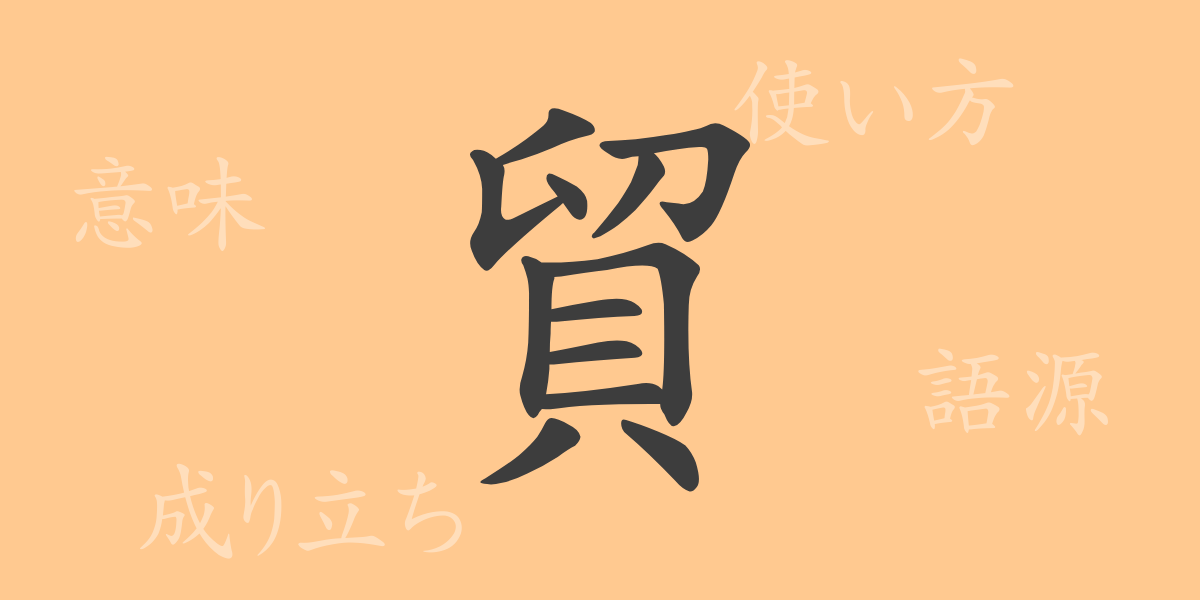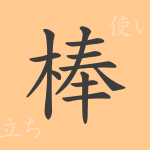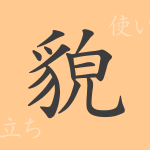Rooted in Japanese culture and serving as a crucial element that supports economic activities, 常用漢字 (Jouyou Kanji) are deeply intertwined with our daily lives. Among these, the kanji “貿” (Bou) has been used to symbolize the importance of interaction in the international community. In this article, we will delve into the origins, meanings, usages, as well as idiomatic expressions and proverbs involving “貿” (Bou), exploring the profound depth of the Japanese language.
The Origin of 貿 (Bou)
The kanji “貿” (Bou) originated in ancient China to represent concepts related to commercial activities. Its structure combines “貝” (Kai), meaning shell currency, and “卯” (U), representing mutual exchange. This combination led to the meaning of “貿易” (Boueki), which signifies the exchange of goods and services.
The Meaning and Usage of 貿 (Bou)
The primary meaning of “貿” (Bou) is to “trade” or “conduct commerce,” referring to activities related to business. Specifically, it is commonly used in the context of the exchange of goods and services between countries, known as “貿易” (Boueki). Additionally, it frequently appears in economic terminology, especially in the context of international economics.
Reading, Stroke Count, and Radical of 貿 (Bou)
Let’s take a closer look at the reading and structure of the kanji “貿” (Bou).
- Reading: It is read as “ボウ” (Bou) in On’yomi. There is no Kun’yomi reading.
- Stroke Count: It has a total of 12 strokes.
- Radical: The radical is “貝” (Kai), which evokes the idea of trade using shells and is commonly found in kanji related to wealth and money.
Idioms, Phrases, and Proverbs Using 貿 (Bou)
There are several idioms, phrases, and proverbs that include the kanji “貿” (Bou).
For example, “貿易” (Boueki) refers to the exchange of goods and services between countries, and “貿易風” (Bouekifuu) means the trade winds that blow throughout the year in specific regions. Additionally, “自由貿易” (Jiyuuboueki) refers to international trade conducted without tariffs or trade barriers, an important concept in economic globalization.
Summary of 貿 (Bou)
Through this article, we have deepened our understanding of the historical background, meanings, and usage examples of the kanji “貿” (Bou). As a symbol of interaction in the international community and a fundamental concept in economic activities, “貿” (Bou) is closely related to our lives. Learning the meanings embedded in each character of the Japanese language has provided an opportunity to reappreciate the depth of words and the richness of culture.

























